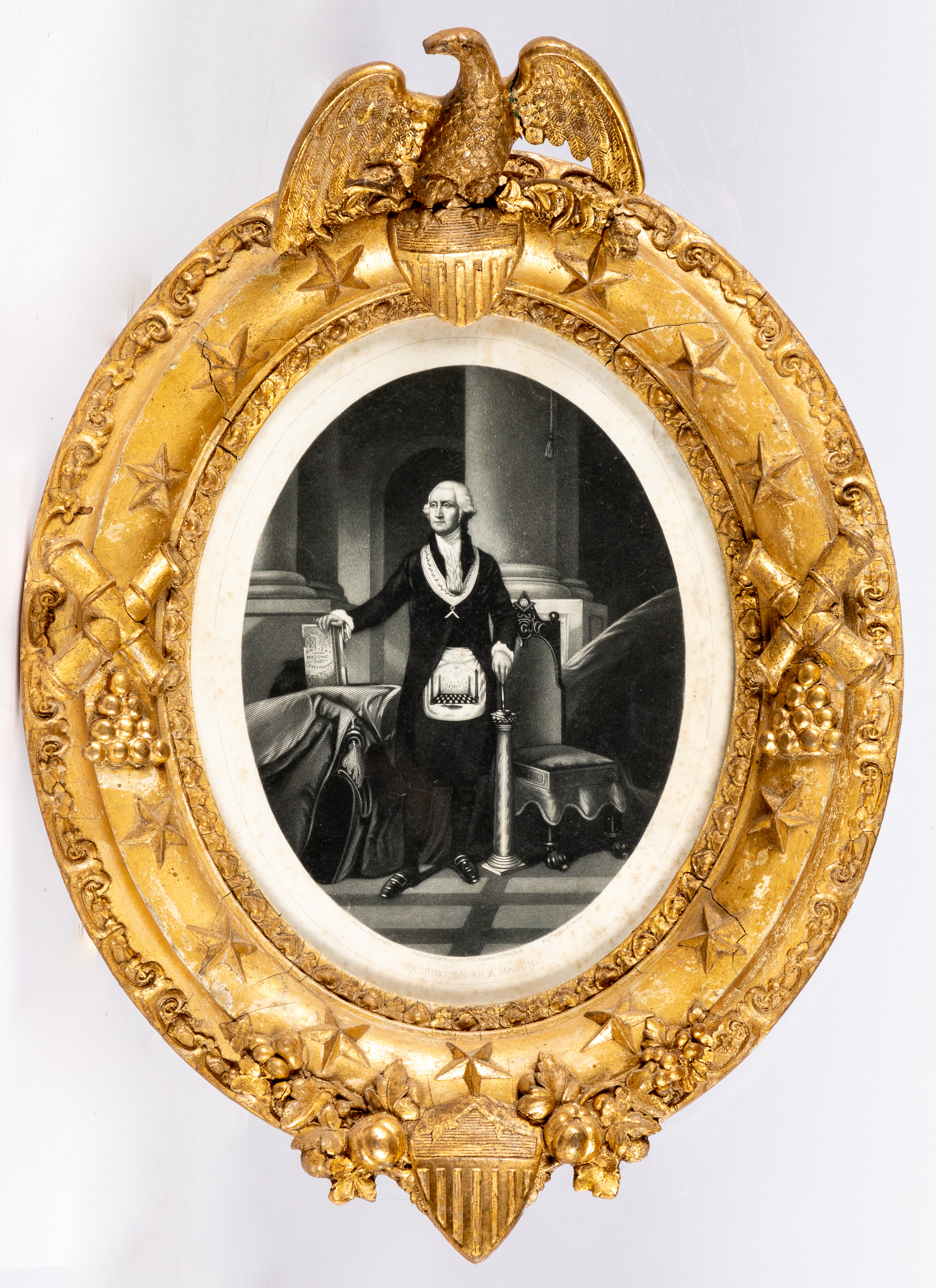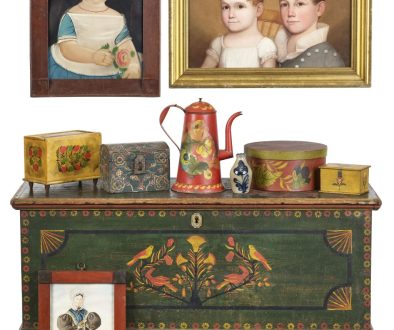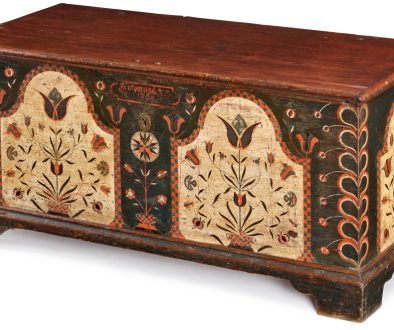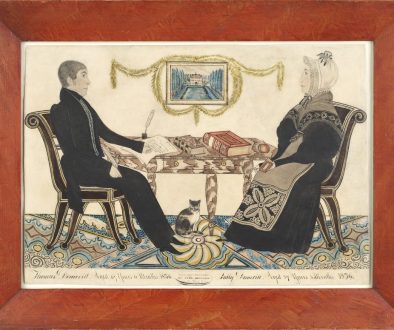National Treasure
What drew me to this pick of the week was the amazing patriotic gessoed frame. Lot 2368 in our July 28th sale, the frame is loaded with stars, shields, crossed cannons, and topped with a spread wing eagle crest. It is a wonderfully uplifting thing to behold. Then the lithograph caught my attention. One of many adaptations of Gilbert Stuart’s 1796 portrait of George Washington, this portrait had been altered to show Washington in Masonic regalia, with his hand on a book. Which got me to thinking…
What if George Washington, Father of Our Country, passed along secret information to a select few people? A secret of a fabled treasure of immense value, a universal truth? The result might be a Dan Brown mystery, a cult classic movie, or, believe it or not…, the actual words of George Washington.
Evolving from medieval stonemason guilds, and purportedly preserving the sacred geometry of Solomon’s Temple, Freemasonry attracted not only the builders of cathedrals, but also other members of the sciences and eventually members of the European elite. In 1717, the first Grand Lodge was founded in England, followed in 1730 by a lodge in Philadelphia, of which Benjamin Franklin was a founding member. Membership was secret, as were rites and rituals, because, emerging out of the radical thought movements of the Reformation and Enlightenment, Masonic principles of religious toleration and liberty were in conflict with the religious and political orders of the Old World. In America, the ideals of the enlightened philosophical and social movements sweeping Europe were held in common. Freemasonry was only a small part of this current, but an influential one. Thirteen of the thirty-nine signers of the Constitution were members of the Masons. In America, Ben Franklin could accurately say “Their grand secret is, that they have no secret at all.”
On August 4th, 1753, young George Washington became a Master Mason. In 1788, after becoming the first United States President, he was elevated to the first Worshipful Master of Alexandria Lodge No. 22. In 1790, President George Washington revealed one of Freemasonry’s most radical ideas- to the congregation of a Newport, Rhode Island synagogue: “It is now no more that toleration is spoken of as if it was the indulgence of one class of people that another enjoyed the exercise of their inherent natural rights. For happily, the government of the United States, which gives to bigotry no sanction, to persecution no assistance, requires only that they who live under its protection should demean themselves as good citizens…” Washington’s famous letter is the inheritance of those radical thought movements, a principle of which was the search for religious truth wherever it existed. A gift infinitely more valuable than a roomful of treasure.
by: Cynthia Beech Lawrence
Sources:
“George Washington as a Freemason | Graphic Arts.” Princeton University, The Trustees of Princeton University, 10 Sept. 2019, graphicarts.princeton.edu/2019/09/10/washington-as-a-freemason/.
Tabbert, Mark. “Freemasonry.” George Washington’s Mount Vernon, www.mountvernon.org/library/digitalhistory/digital-encyclopedia/article/freemasonry/.
Horowitz, Mitch. “Masons and the Making of America | Op-Ed | US News.” U.S. News & World Report, U.S. News & World Report, 14 Sept. 2009, www.usnews.com/opinion/articles/2009/09/14/masons-and-the-making-of-america.




